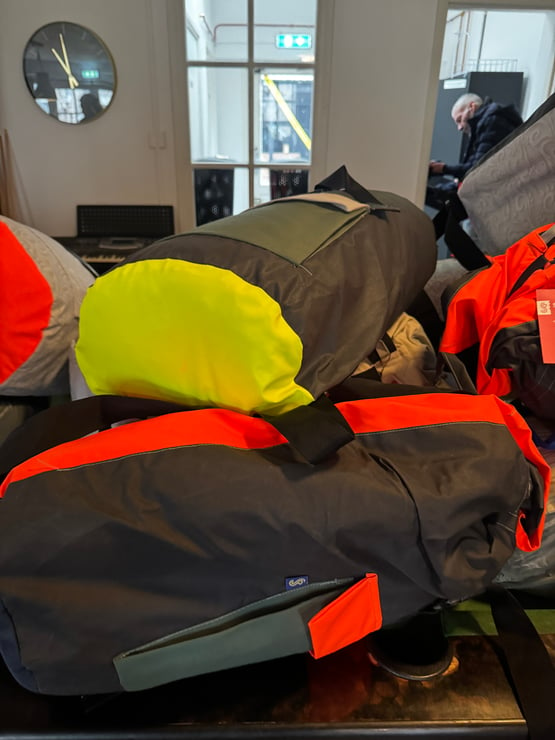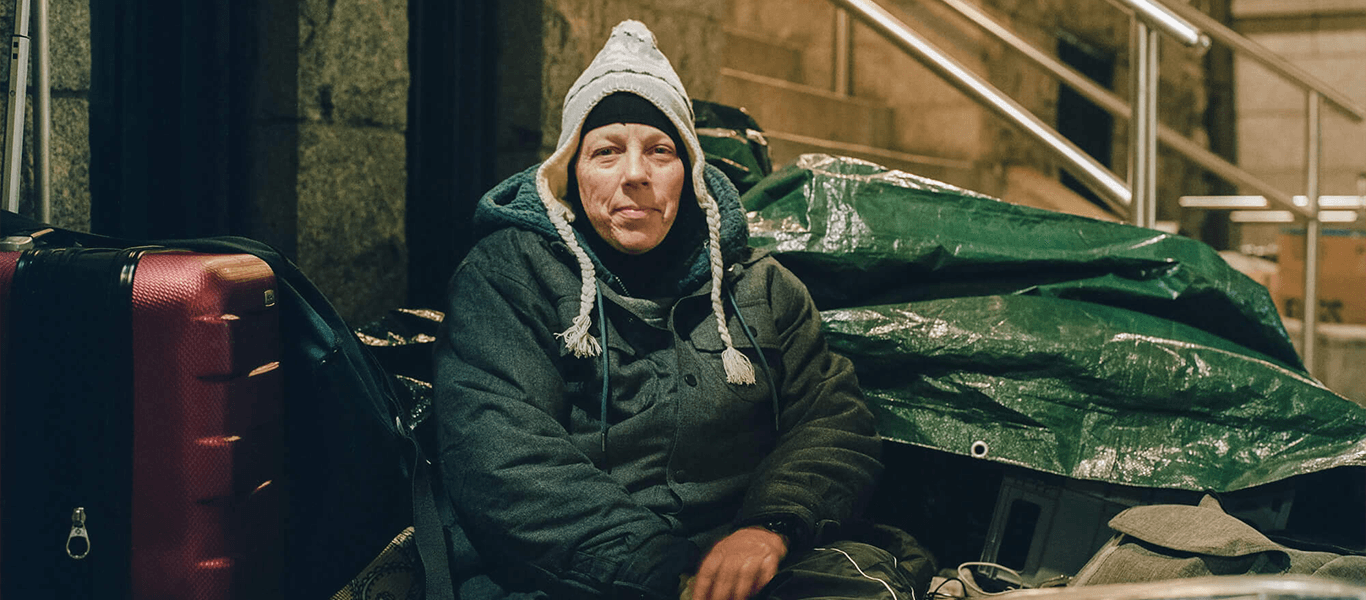Because of the Brexit, Marlon (56) came to Amsterdam a year ago from London, the city where he once found refuge. But after a life of more than 14 years in England and three years in Spain, he now feels lost here. A lack of care, bureaucratic barriers, and a city that feels less and less compassionate: Marlon's story is a plea for a different view of homelessness in the Netherlands.
It's fighting every day for a place to sleep
Since his return to Amsterdam, Marlon has been homeless. Whereas in London he still had a home, here his life is defined by the search for a place to sleep and a daily struggle for safety and rest. His health, undermined by diabetes and neuropathy, only makes that struggle harder. “The cold is not only physically painful, it makes everything harder. I have diabetes with neuropathy - my legs get damaged quickly by the cold. There is little sleep because you have to stay alert. People try to steal your stuff. So in the morning I often start my day exhausted.”
It is fighting every day for a place to sleep.
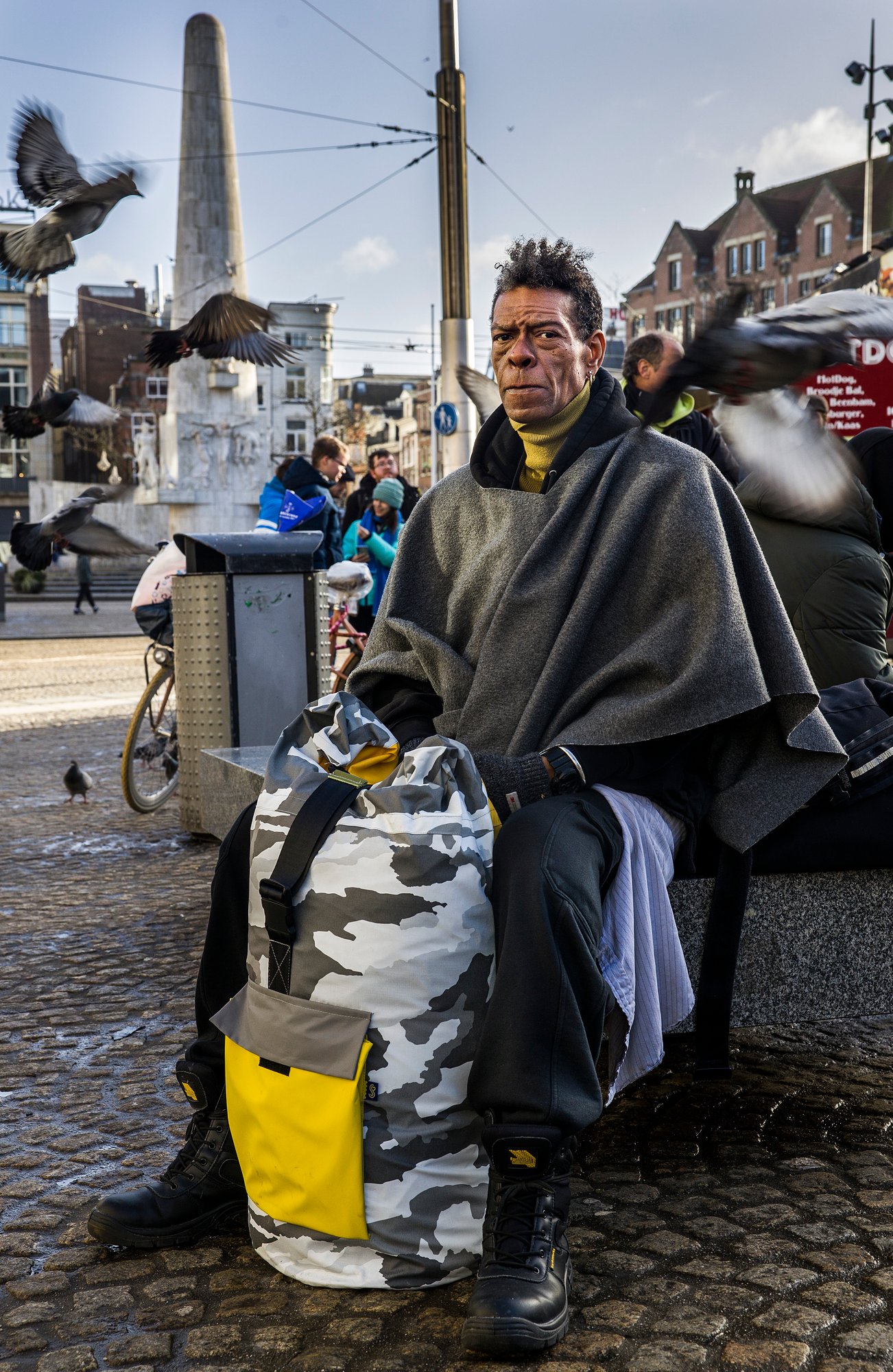
A routine of survival
His days proceed in a fixed, oppressive routine. Walking around, looking for a place to wash clothes, and then waiting for the Blaka Watra daycare to open - one of the few places he can warm up. He can get there around noon, to stay until the shelter closes at 4:30. Then it starts all over again: finding a place to sleep. “It's hard when your health doesn't cooperate and you're uncertain every night about where you can sleep. I don't want to anymore, but the city doesn't seem to be for me either.” “I am on so many lists, but nothing changes” Marlon says he is on numerous waiting lists, from medical care to day care to a small house in Amsterdam-West. But time is slowly ticking away, while his situation remains unchanged. His medical symptoms worsen, but it often takes months before there is room for an appointment. “I'm on the waiting list for everything: medical help for my diabetes, a place to live, a daycare. But it feels like I'm up against walls. Sometimes I wonder if I'll ever get out of this situation.”
Amsterdam - a city gone hard
The city he once knew seems gone. Marlon tells how Amsterdam has become less and less accessible since his childhood, especially for people who are struggling. He sees how life on the streets is grimmer and people are more indifferent. “Before, in the 1990s, it seemed like people still really saw each other here. Now everyone walks by quickly, no one seems to pay attention to each other anymore. Homeless people? They are invisible in their eyes. Everything feels harder, colder. And the problem of homelessness seems to be getting worse by the day.”
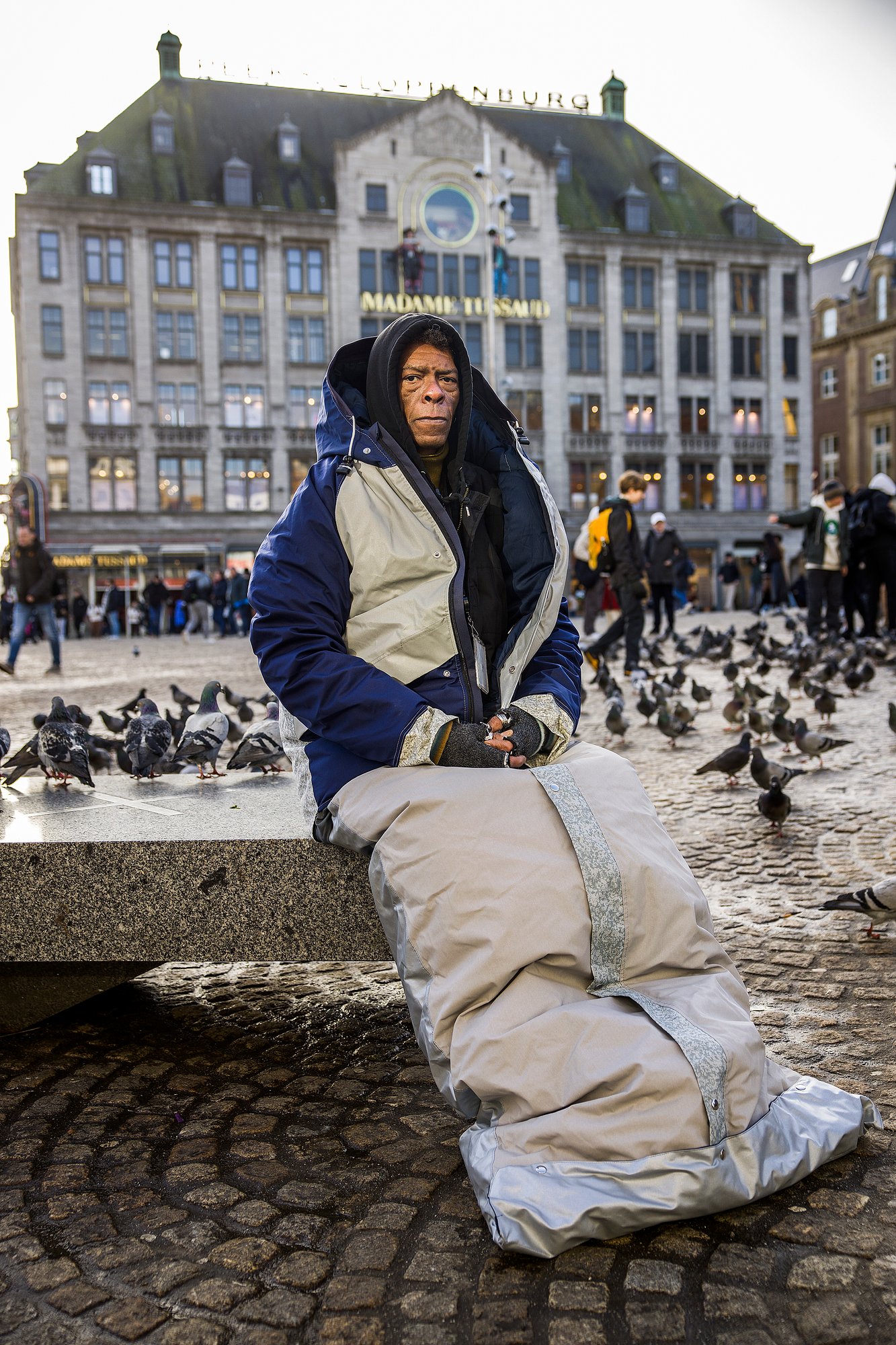
The essence of a home - a reminder of London
Marlon thinks back wistfully to his small home in London, where he had a garden and his belongings were safe. Here in Amsterdam, it feels like that human base is being denied him. “In London I had a house, small but mine. Here it's survival every day, searching for a place to sleep. Without a place to retreat to, you remain constantly on guard. It's like I don't really belong anywhere.”
A plea for human connection
Marlon urges people to look into the story behind homelessness. He finds that passersby often judge without understanding. It's easy to think that people on the street “just have to work,” but reality is rarely that simple. Even when people want to give food, it turns out to be a gesture that doesn't always turn out well. “Look, I appreciate that people want to give something, but it's not always easy to accept. For example, because of my diabetes, I can't eat chicken because of the preservatives, and that happens a lot. People often don't know the story behind a homeless person, and a little thought can make such a difference.”
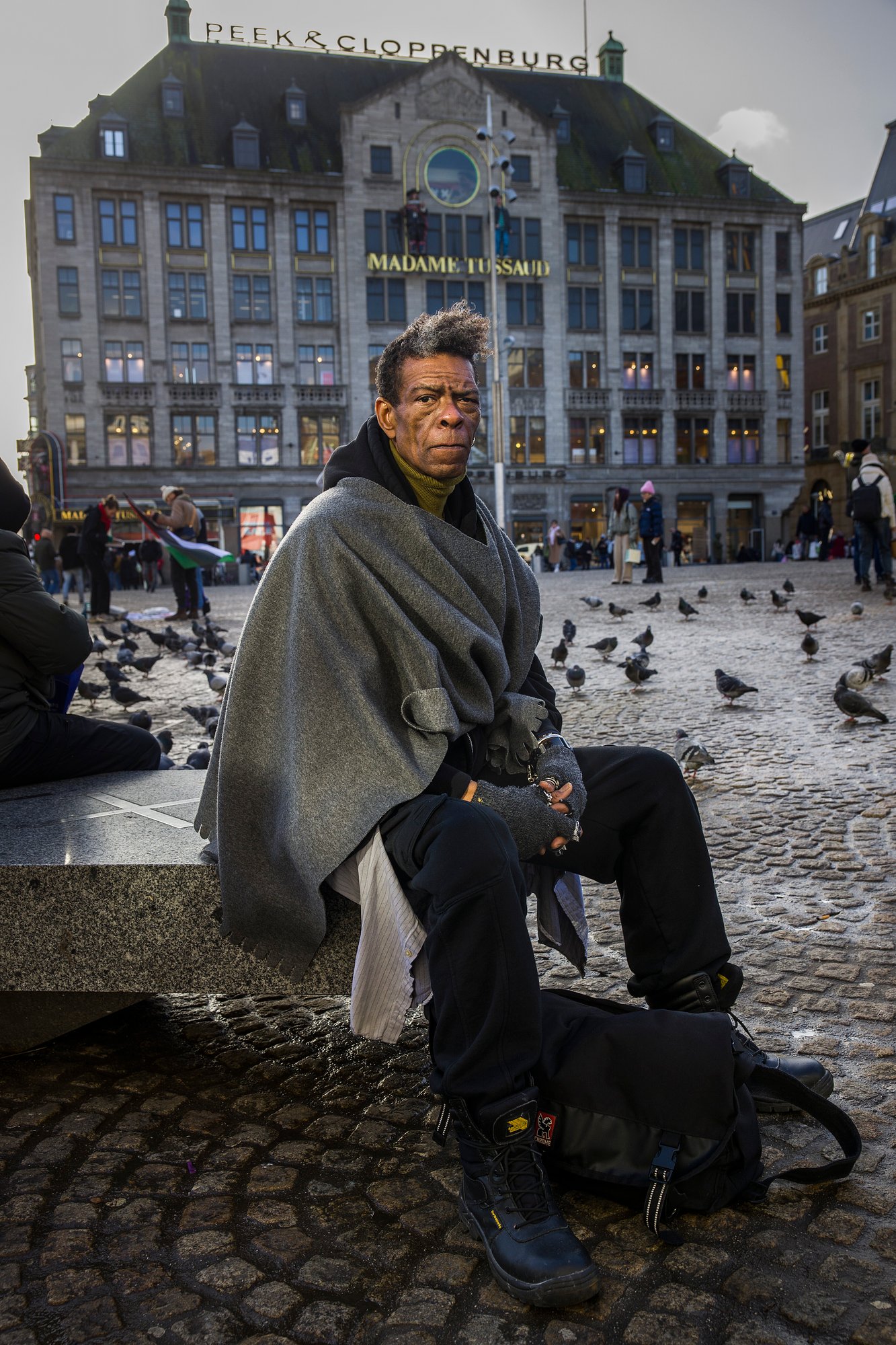
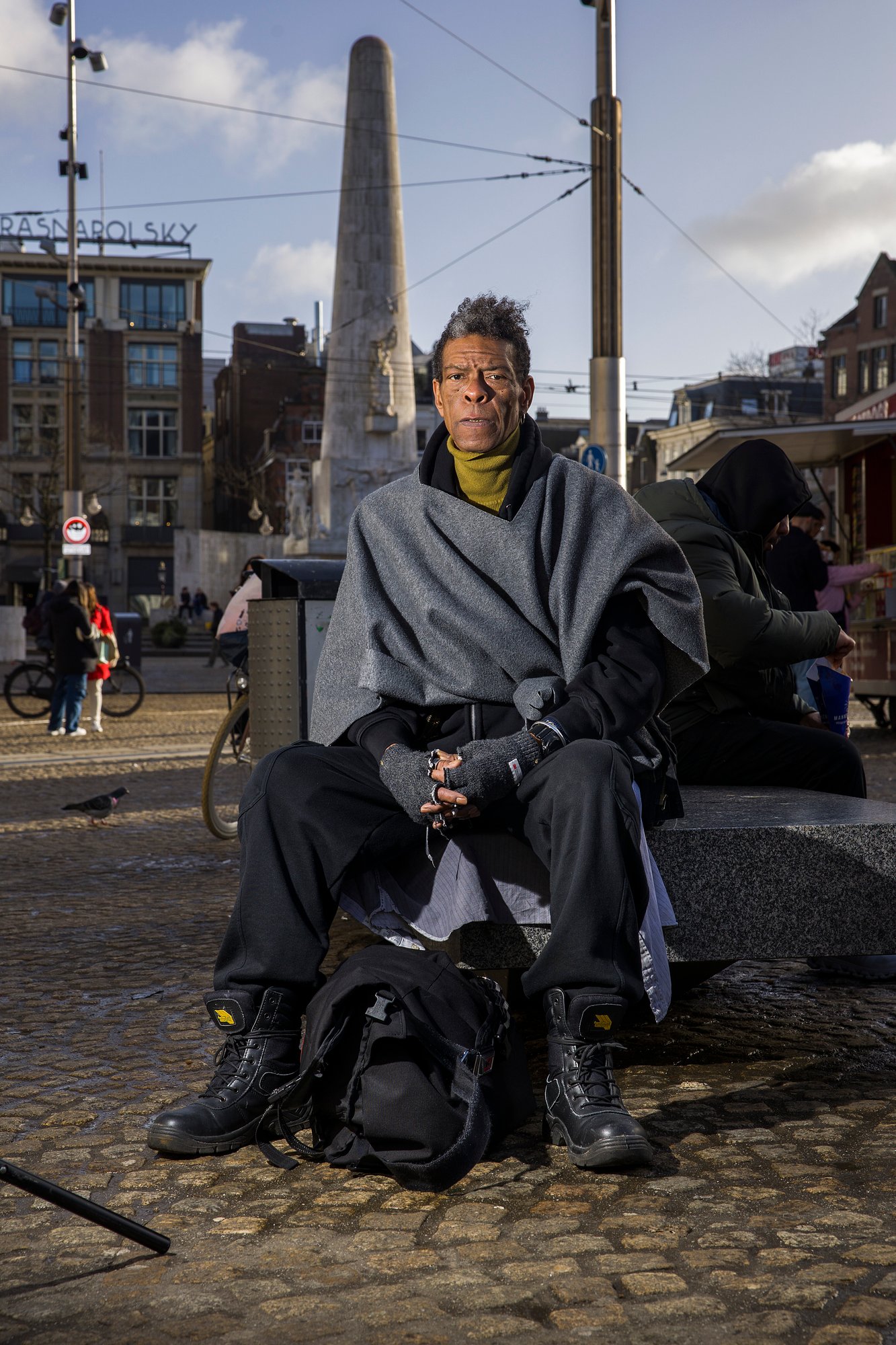
Container housing - an alternative to homelessness?
In his conversations with other homeless people and volunteers, Marlon came across an idea that inspired him: container homes, like the ones in Rotterdam. He sees them as a cheap and viable solution for people who, like him, are looking for a safe place to live. “We are a rich country. Here, no one should have to sleep on the streets. Container housing like in Rotterdam, that's a solution, right? Many of us would like to work and contribute, but without a roof over your head, you simply can't get back into society.” For Marlon, it is clear that something needs to change, both in policy and in people's attitudes toward the homeless. His story is a call to the city, its residents and policy makers to look at each other with more empathy and really do something about the growing problem of homelessness in Amsterdam.
















